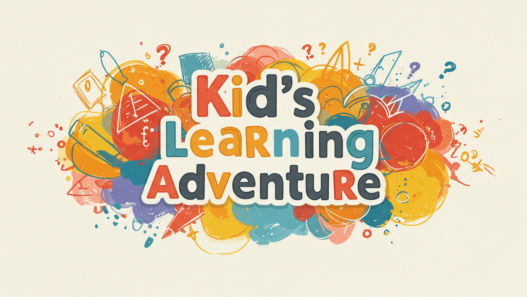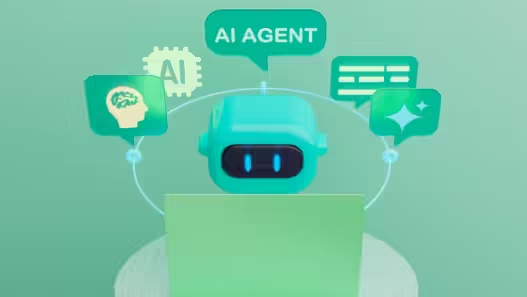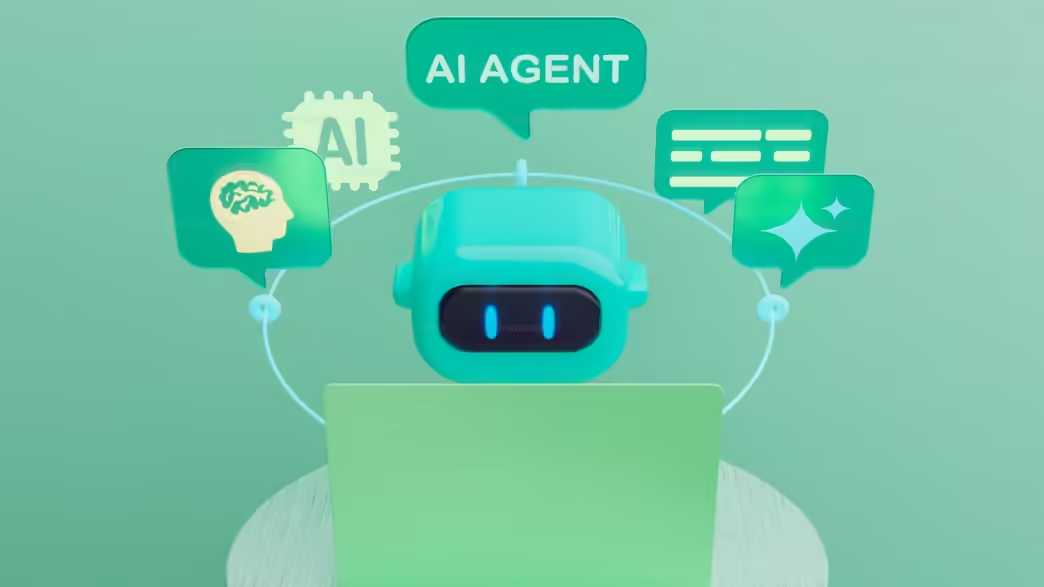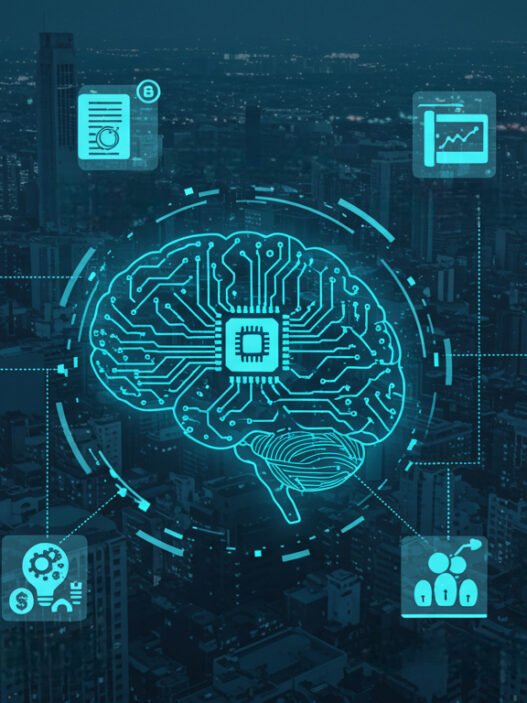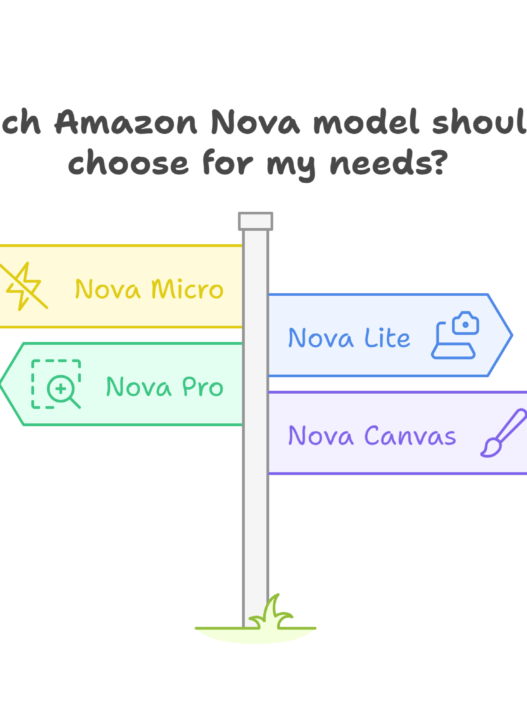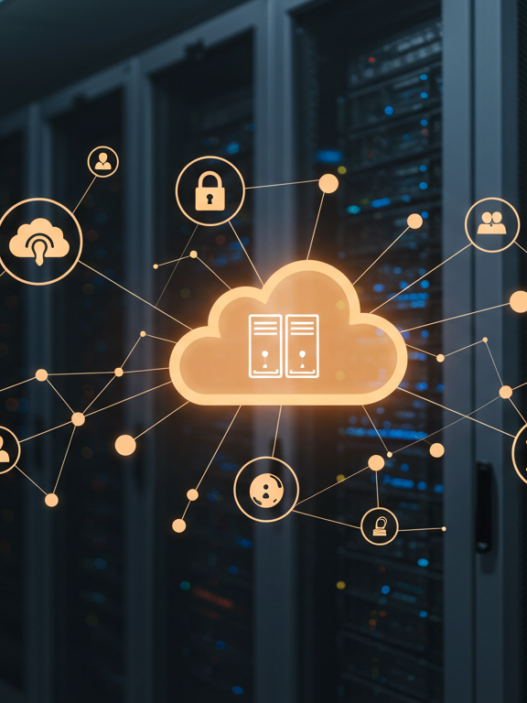TLDR: AI agents are intelligent computer programs that can automate tasks, boost productivity, and improve customer service. However, it is important to address potential risks like data security and bias through transparency and ethical considerations. Real-world examples include Microsoft 365 Copilot, Amazon Q Developer, and SharePoint Agents.
AI is changing how we work, and AI agents are at the forefront of this transformation. They are like highly skilled digital assistants who can work alongside us or independently to complete tasks.
What Are AI Agents?
AI agents are intelligent computer programs designed to solve problems and achieve goals with minimal human input. They are different from simple chatbots or AI tools that only generate content. AI agents can take action in the real world, like interacting with other software, managing data, and even controlling physical devices.
How Do AI Agents Work?
They follow a simple, logical process:
- Understand the Goal: The user gives the AI agent a clear objective, such as “Schedule a meeting with my team next week” or “Find the cheapest supplier for office supplies.”
- Create a Plan: The AI agent breaks down the goal into smaller steps, figuring out what information it needs and what actions to take.
- Take Action: The AI agent gathers data, interacts with other systems, and executes the plan to achieve the goal.
How Can AI Agents Help Businesses?
AI agents are a game-changer, especially for small and medium-sized businesses (SMBs).
- Boost Productivity: AI agents can automate routine tasks, freeing up human employees for more strategic and creative work. This leads to significant increases in productivity and efficiency.
- Improve Customer Service: AI agents can provide 24/7 customer support, answer questions accurately, and resolve issues quickly. This improves customer satisfaction and loyalty.
- Make Smarter Decisions: AI agents can analyze large amounts of data to identify patterns and insights, helping businesses make better decisions about pricing, marketing, and operations.
What are the Potential Risks?
While AI agents offer tremendous potential, it’s important to be aware of potential risks:
- Data Security: AI agents need access to data to function effectively, so ensuring data security and privacy is crucial.
- Bias: AI agents learn from data, and if the data is biased, the agent’s decisions might be biased too. It’s essential to address bias in training data and algorithms.
- Job Displacement: There is a concern that AI agents may replace human jobs. However, many experts believe that AI agents will create new opportunities and augment human capabilities.
Implementing AI Agents Responsibly
It’s crucial to implement AI agents responsibly to minimize risks:
- Transparency: The decision-making process of AI agents should be transparent and understandable to humans.
- Human Oversight: Humans should have the ability to monitor and control AI agents to prevent unintended consequences.
- Ethical Considerations: The development and use of AI agents should be guided by ethical principles to ensure they are used for good.
Impact on the Future
AI agents are transforming the future of work by automating complex tasks, boosting productivity, and reshaping human-machine collaboration. By 2027, it is predicted that 50% of companies using generative AI will have incorporated AI agents into their operations. These agents can work autonomously, freeing up human employees to concentrate on strategic initiatives, creative endeavors, and tasks that necessitate human skills like critical thinking and emotional intelligence. This shift, however, underscores the importance of upskilling and retraining the workforce to effectively partner with AI agents
Real-World Examples of AI Agents
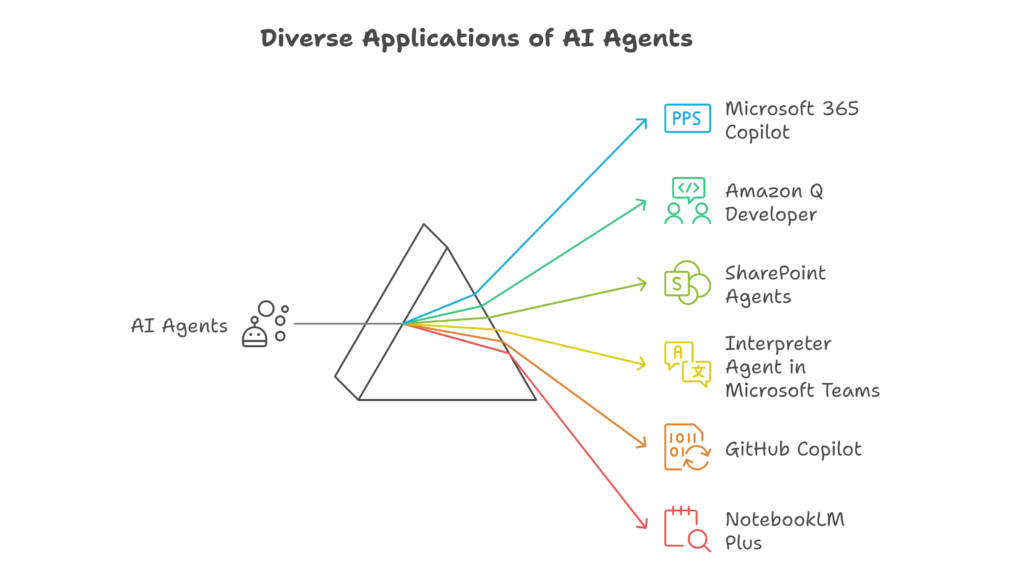
- Microsoft 365 Copilot: This versatile AI assistant can help with tasks like writing emails, summarizing meetings, creating presentations, and more.
- Amazon Q Developer: An AI-powered tool that assists developers in writing code, debugging, and understanding complex codebases.
- SharePoint Agents: Every SharePoint site will have an agent that can help employees find information, summarize documents, and answer questions quickly and efficiently.
- Interpreter Agent in Microsoft Teams: This agent provides real-time translation during meetings, breaking down language barriers and facilitating global collaboration.
- GitHub Copilot: An AI-powered coding assistant that offers code suggestions, generates tests and documentation, reviews code for errors, and helps fix security vulnerabilities.
- NotebookLM Plus: An enhanced version of NotebookLM that allows users to upload various file types, generate summaries, create FAQs, and produce audio overviews of documents, with additional chat settings and analytics features.
These examples highlight the diverse capabilities of AI agents and their potential to revolutionize how we work. As AI technology continues to evolve, we can expect to see even more powerful and innovative AI agents emerge, transforming industries and reshaping the future of work.


